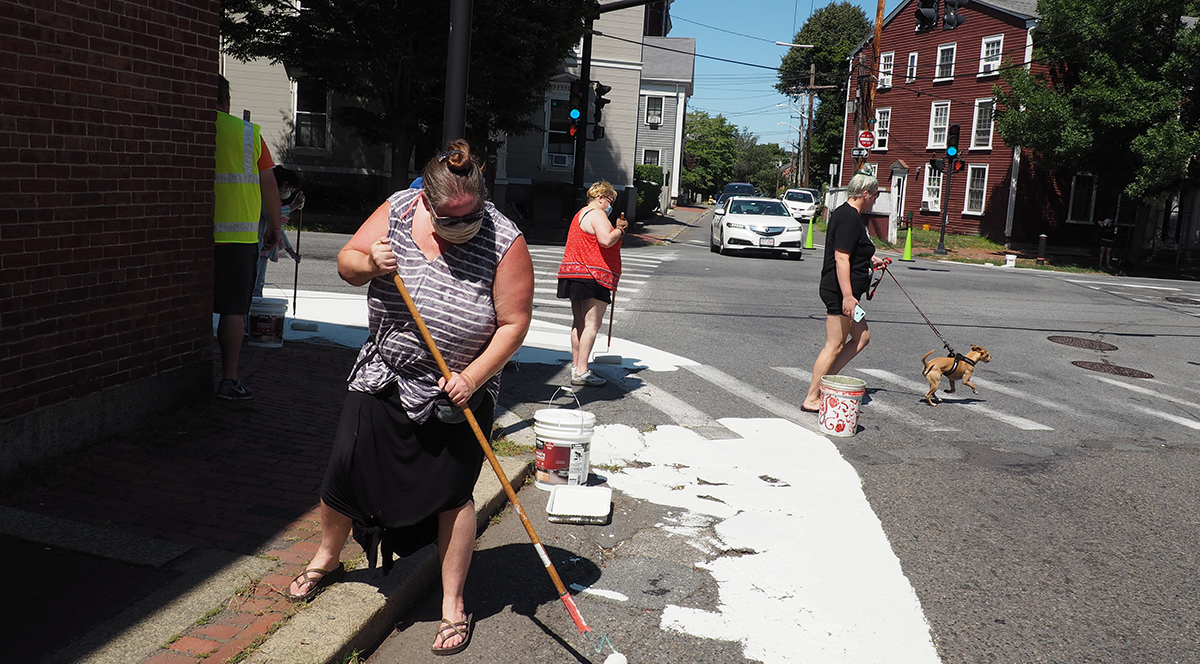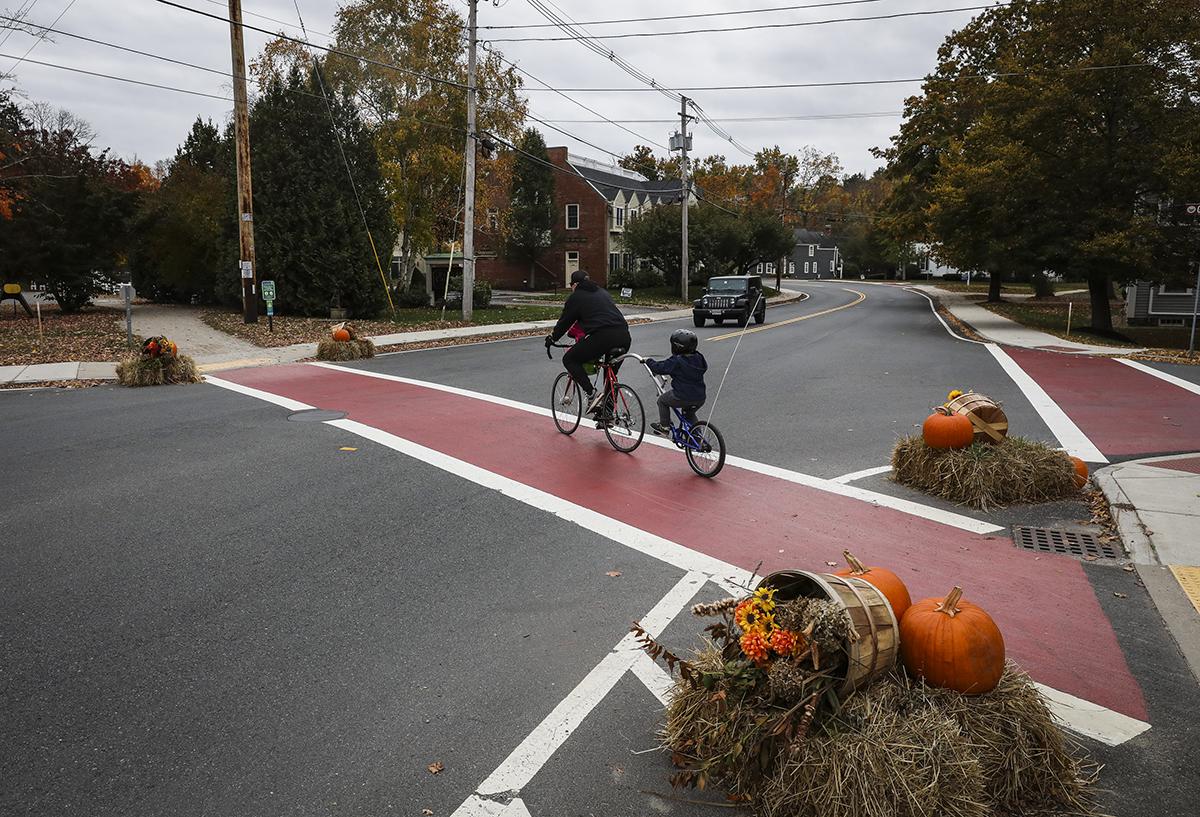In Partnership with the Barr Foundation
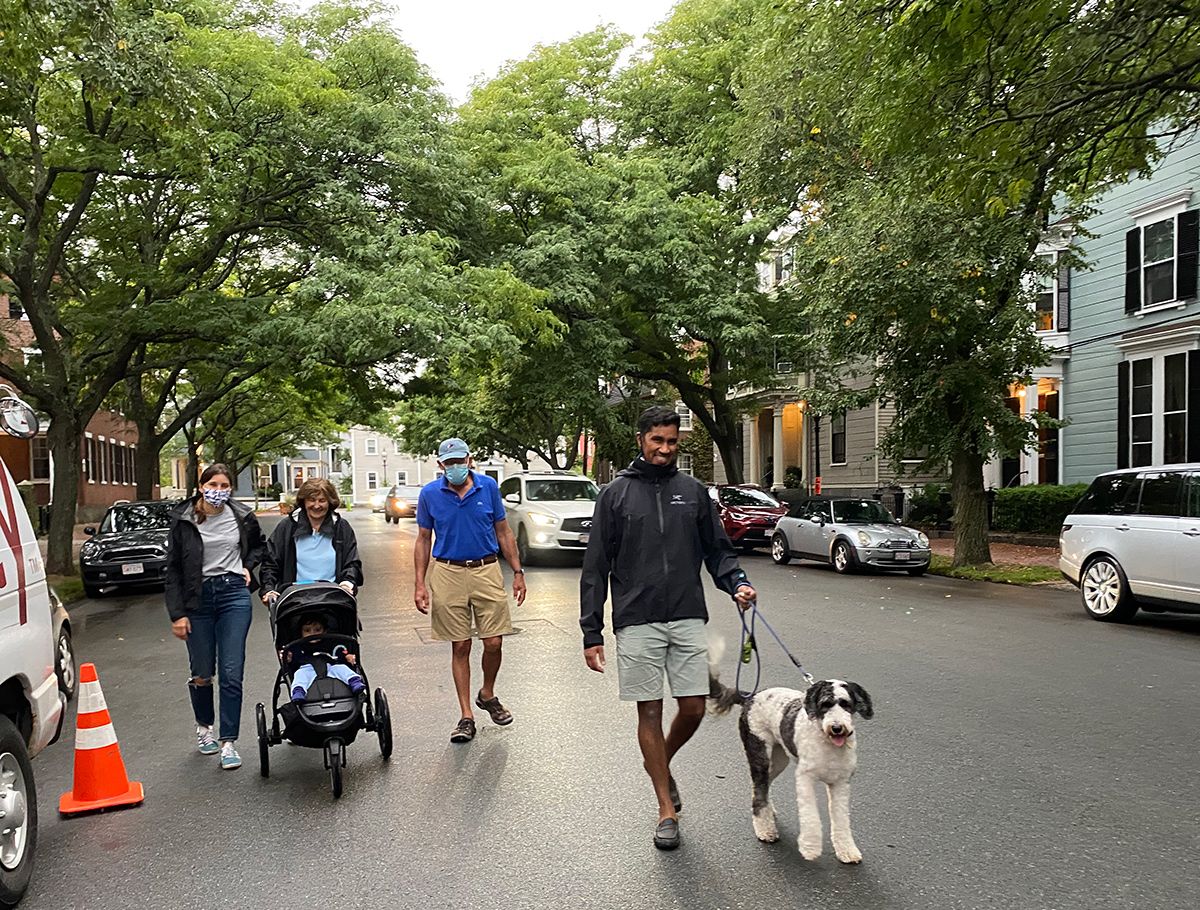
The COVID-19 pandemic has demonstrated an urgent need to rethink active transportation and shared public spaces. More and more people are relying on walking and biking for essential trips and commutes. People are demanding well-maintained parks and trails so they can connect with nature, spend time with their friends and families, enjoy physical activities, and connect with their neighbors. Investing in shared greenways and parks has a triple bottom line: it addresses public health, environmental equity, and climate change — all while building a sense of community and shared connection.
In 2020, in response to the pandemic, we expanded our geographic reach and adapted our grant making and technical assistance to include shared streets and shared civic spaces in dense urban areas across the commonwealth. At the same time, we doubled down our efforts to increase equitable access to parks and greenways for environmental justice communities.
In this review, we’ll show you how, with our partners who work tirelessly everyday, we’ve worked to give communities the tools to plan, test out, and implement new ways to access public space and transportation resources.
Dear Friends,
The pandemic and protests have also made ever more apparent the deep inequities in how our public space and transportation resources are distributed across communities and modes of transportation. As for so many, these events have been a wake-up call for us.
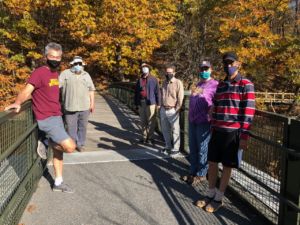 In response to the pandemic when it first emerged in the spring, the Solomon Foundation immediately expanded to temporary quick-build strategies giving communities the tools to plan and build temporary facilities for circulation and accessible places outdoors.
In response to the pandemic when it first emerged in the spring, the Solomon Foundation immediately expanded to temporary quick-build strategies giving communities the tools to plan and build temporary facilities for circulation and accessible places outdoors.
Working closely with state agencies, municipalities and nonprofit partners, we promoted short-term pop-up demonstrations and extended pilot projects for walkways, streets, and parklets. While meeting a surging need for comfortable access to open space during the pandemic, we south to model the benefits of more permanent change. We saw this as a chance to broaden people’s thinking about how walkways, streets, and parks can be used differently and more equitably.
Our COVID-19 response began in April with the Solomon Foundation launching a Streets for Recovery Emergency Response Grant Program. Soon after, MassDOT launched their complimentary Shared Streets and Spaces Grant Program – one of the most rapid and innovative emergency responses we’ve ever seen from state government. Solomon Foundation convened a partnership of technical assistance providers with the Barr Foundation, MAPC, MassDOT, and nonprofit partners to support communities.
While municipalities will likely be constrained by diminished local budgets for the next few years, we hope our new partners come back for help in advancing this new vision for more accessible streets and public spaces which communities themselves piloted. We are confident this will be encouraged by work on the local, state, and federal level to provide stimulus funding for green infrastructure and active mobility.
In 2021 and beyond, we look forward to working with our growing team of partners to apply what we’ve all learned during the pandemic and working together to realize the long-term vision of an accessible, connected network of greenways and green spaces across the Commonwealth.
Herb Nolan, Executive Director
We Believe
Everyone in the Commonwealth should have safe and easy access to an interconnected system of well-loved and well-cared for parks and greenways that enhance the health and well-being of people and the environment.
In 2020, we partnered with:
In 2020, we invested:
dollars
in Design and Feasibility Studies
dollars
in quick builds and activations
dollars
in organizations that provide leadership creating greenways
hours
in Early Stage Planning, Design, and Project Work
75% of grantees orgs led by women and people of color.
$53% of Grant dollars to orgs led by women and people of color.
In 2020, with broad support from many partners these grants leveraged $33 million in federal, state, and municipal funds.
2020 Project Details
In 2020, construction of the PONY TRUSS TRAIL, portions of the paths at BLESSING OF THE BAY, portions of the Rail Trail section of the NORTHERN STRAND was completed. We look forward to gathering to celebrate in person as soon as it is safe to do so.
2020 Highlights
Read About a Few of our 2020 Highlights
Projects Recently or Soon to be Constructed
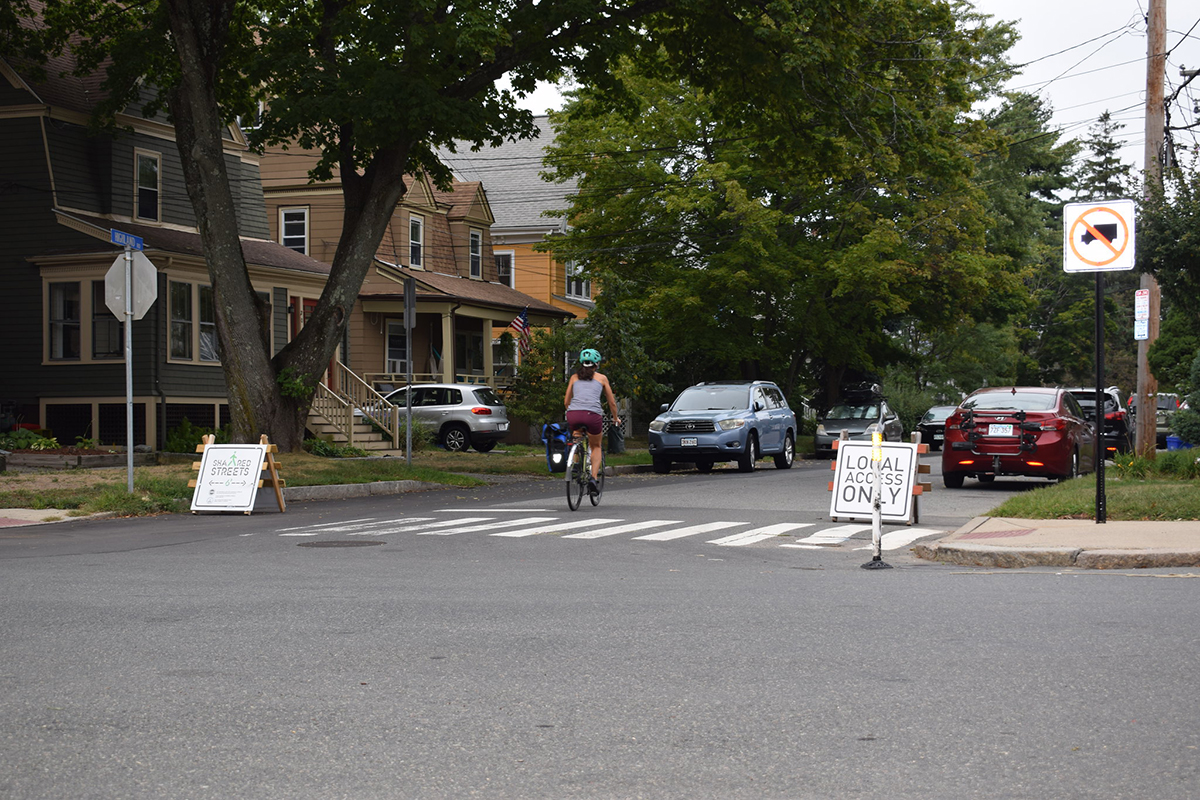
- DCR and the City of Somerville have begun construction of the Blessing of the Bay Paths.
- DCR has included construction of the Clippership Connector in their 5 year plan and construction is anticipated to begin soon.
- The Commonwealth Ave Carriageway Restoration is scheduled for TIP funding in 2025 and received Newton CPA funding for 25% design.
- Two extensions of the Peabody Independence Greenway to connect over 1 and I-95 and to connect to the Northshore Mall are scheduled for TIP funding in 2024 and 2025.
- Phase one of the Swampscott Rail Trail was completed in summer 2020, and phase two was funded for construction in 2020 as part of the MassDOT Shared Streets and Spaces Emergency response program.
Planning to Get Projects Built
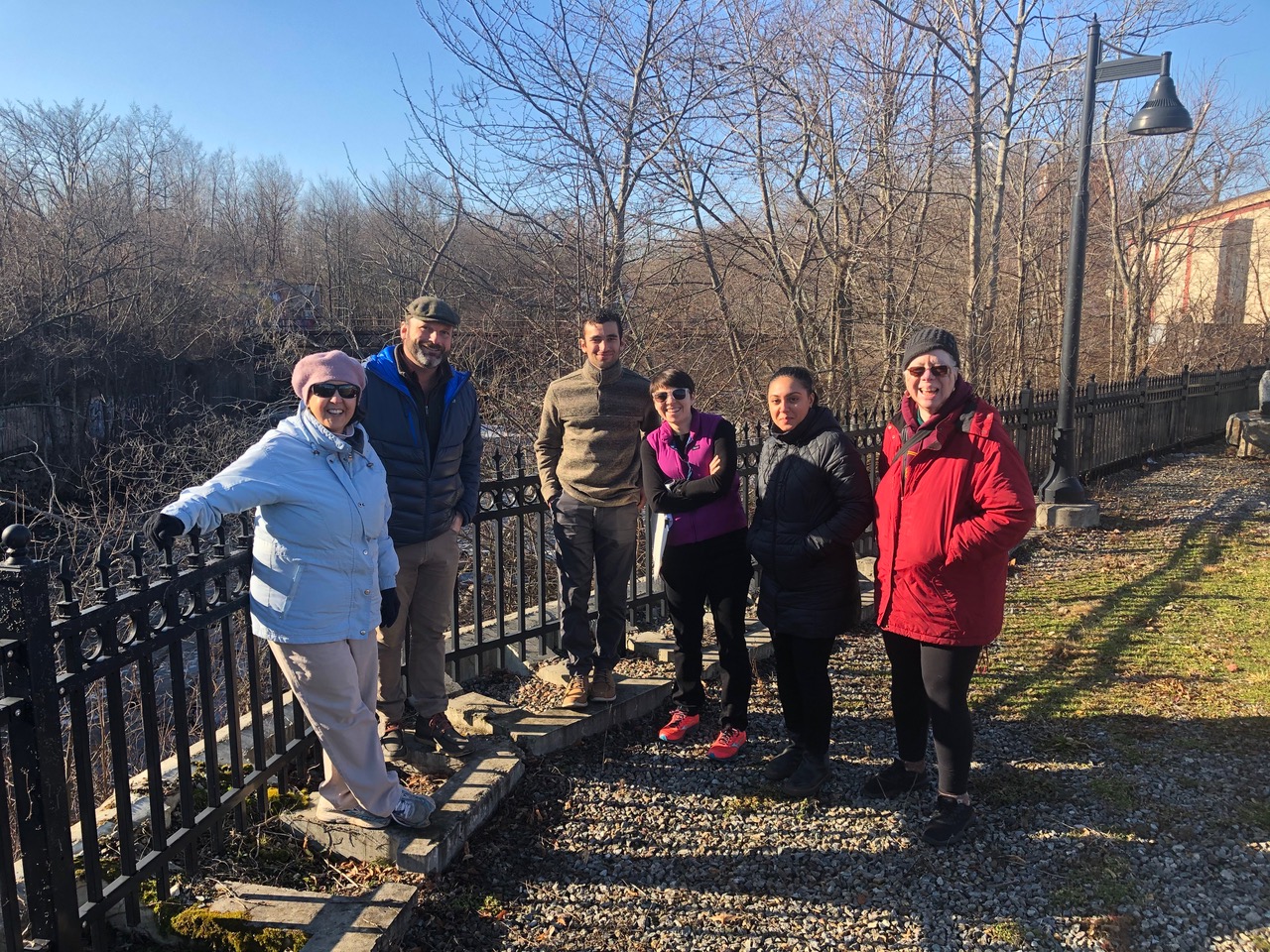
- Portions of the Blessing of the Bay Path, Park, and bicycle accessibility are begin designed by DCR and Somerville.
- Charlesgate Park and connections are in design.
- Doyle Park and Path neighbors are considering short term and long designs for park improvements and for their path along the Neponset River.
- The Edgewater Neighborhood Association is considering design options for the path along the Neponset River.
2 Feasibility Studies Funded
Informing Design Alternatives
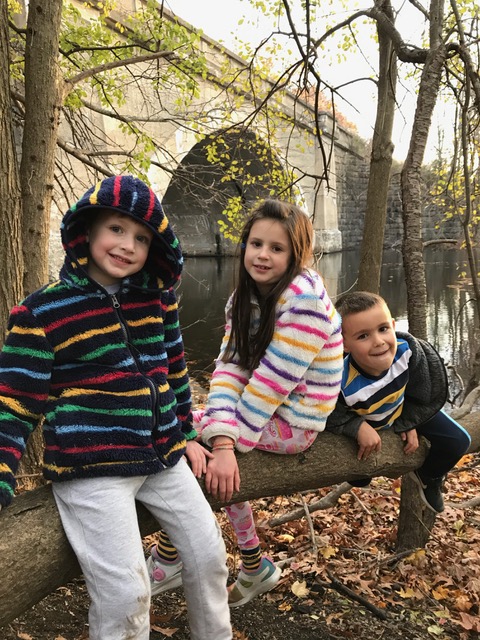
- The Pigeon Hill Path feasibility study was funded and completed.
- The Salem and Peabody North Riverwalk Corridor feasibility study was funded and began with remote meetings.
Piloting New Ways to Share Space
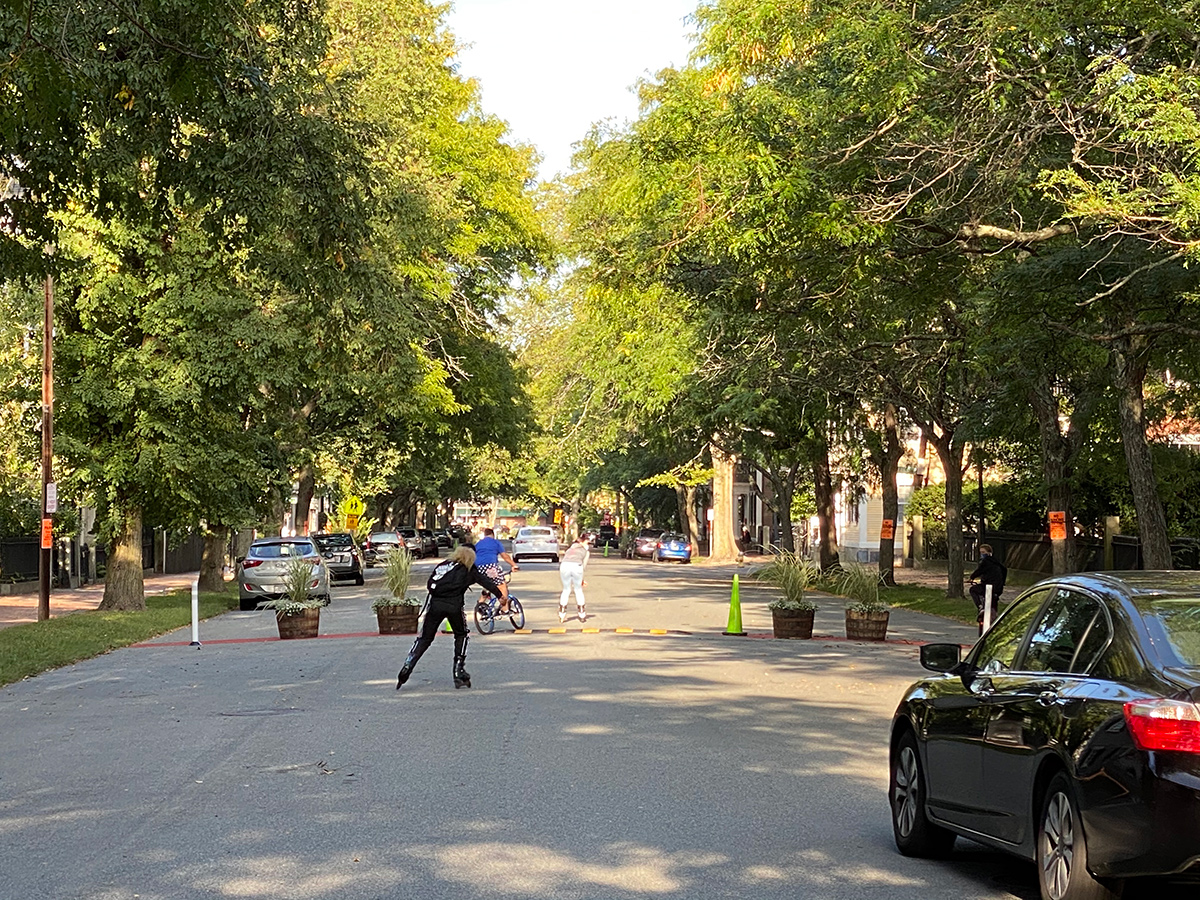
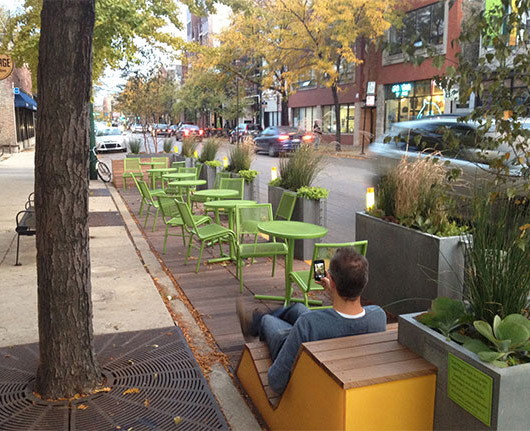
To meet the urgent need for space, the Solomon Foundation has been working since April to give communities the tools to plan and quickly build temporary facilities for circulation and civic use. Working closely with state agencies, municipalities and nonprofit partners, we have promoted temporary interventions – quick demonstration and extended pilot projects – as a way to meet urgent needs and to model the benefits of more permanent changes to the way we use our walkways, streets, and open spaces – paved or unpaved. Here you can see responses from around the state transforming public space for people.
Quick-builds and activations we’ve helped plan and support include:
- Amherst Shared Streets
- Arlington Shared Streets
- Brookline quick-build bike lanes
- DIY Lowell Canal Path Park Entrance Clean Up
- Doyle Park and Path Pop-up Activities
- Edgewater Drive Clean-ups and community outreach
- Fall River Shared Streets
- Green Roots Chelsea COVID-19 Response Hydration Stations
- Holyoke Shared Streets
- Lynn Shared Streets Beyond Walls Outdoor dining prototype
- Medford Shared Streets
- Natick Shared Streets
- Northampton Shared Streets
- Peabody Shared Streets
- Pittsfield Shared Streets
- Rose Kennedy greenway Chinatown Activation
- Salem Shared Streets
- Somerville Shared Streets evaluation and adaptation
- Starlight Square, Central Square outdoor civic gathering space
Rapid Response to Support Recovery
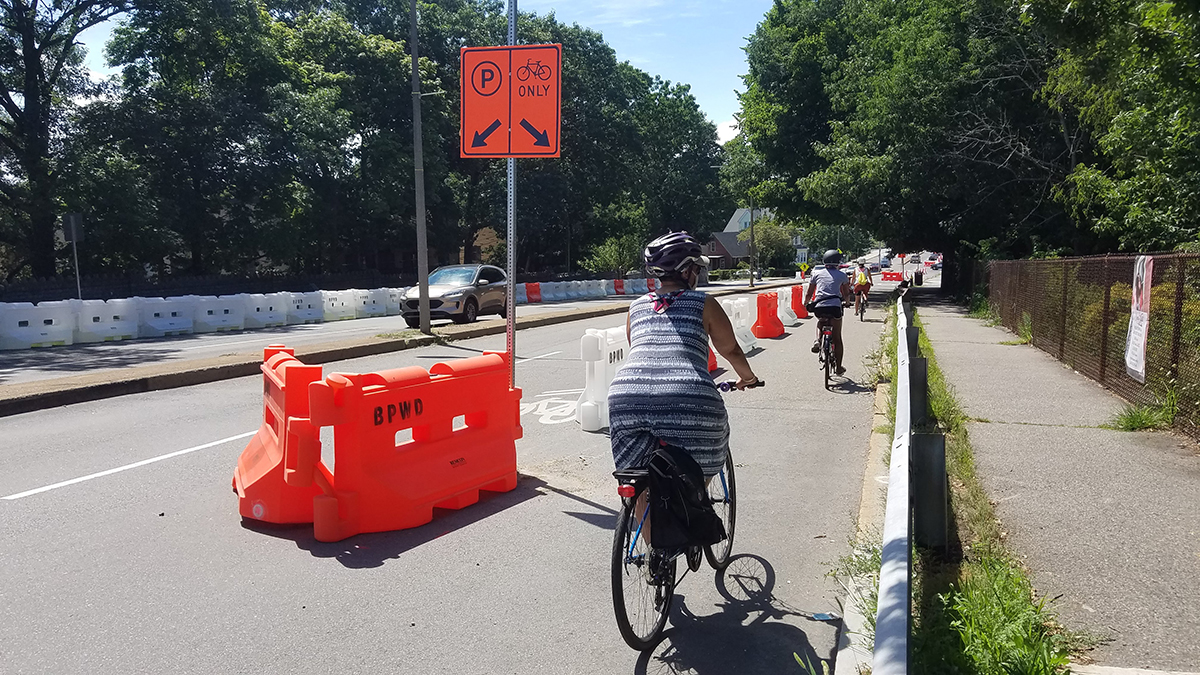
Our COVID-19 response began in April with the Solomon Foundation launching our Streets for Recovery Emergency Response Grant program to support pilot emergency responses to provide more space for people in dense urban communities . Soon after, MassDOT launched their complimentary Shared Streets and Spaces Grant Program – one of the most rapid, and innovative emergency responses we’ve ever seen from state government. The Solomon Foundation convened a partnership of technical assistance providers with the Barr Foundation, MAPC, MassDOT, and nonprofit partners to support communities.
A Connected and Accessible Network
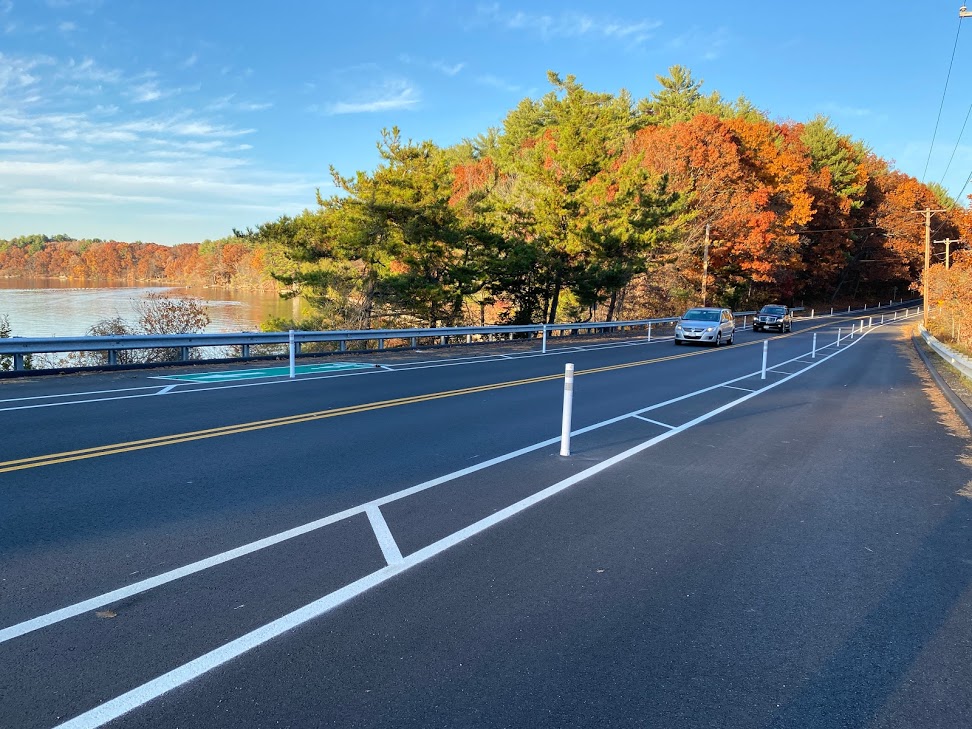
We continue to be inspired by the passion and vision of our many partners across the state who work tirelessly to plan and advocate for new greenways.
All our projects aim to serve state designated Environmental Justice communities, communities where the median household income is below the state median, and from the oldest to youngest among us. In 2020, 85% grant dollars were to projects located within an Environmental Justice area.
All projects serve serving Environmental Justice areas
In 2021, we look forward to continuing to working with our incredible colleagues on activations, applying what we’ve learned in 2020 about quick-builds to park and greenway access improvements, transitioning successful quick-builds to permanent infrastructure, and furthering the long term vision of a connected network of greenways across the Commonwealth.
Thank You
Thanks to our great partners in state and local government, our elected representatives, and to the community of non-profit advocates and local leaders who have helped raise awareness, we have been able to advance several major public/private greenways initiatives. Most of the credit for these accomplishments goes to our friends in government agencies who manage most of the lands and parkways where we have been active and to our civic leaders and non-profit partners who advocate so tirelessly and effectively.

